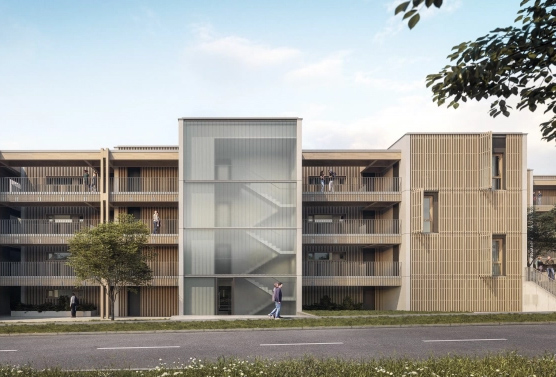
About the funding for the construction of affordable housing, 70% of municipalities are interested
 |
Support for affordable housing from SFPI is intended for the construction of rental apartments and can be used for new constructions, renovations, or extensions. Part of the funds can be immediately applied to a maximum of 40 percent of costs if specific requirements are met. The subsequent subsidized loan at the EU base rate for the Czech Republic, reduced by up to three percentage points, can cover up to 65 percent of the project cost. Overall, grants and favorable loans could cover up to 90 percent of the investment. The repayment period is up to 30 years, and early repayment is fee-free. Legal entities and territorial self-governing units can apply for support.
According to the survey, 78 percent of municipalities do not have sufficient capacity for municipal rental apartments. Of those local governments that would apply for support, 39 percent would use it for apartment construction, and 30 percent for their renovation. Eight percent of municipalities want to use the support for purchasing apartments, while 16 percent are still uncertain about how they would specifically utilize the grant program.
More than a quarter of the surveyed municipalities currently lack suitable land for apartment construction, but five percent indicated their intention to change the zoning plan to acquire such land. In the cadastre of some municipalities, the state or its entities own the land. In spring, the government decided to allocate 201 plots of land totaling approximately 73 hectares for affordable housing construction for municipalities. Three percent of the surveyed municipalities would apply for land for construction. Currently, 57 percent of municipalities have suitable land for apartment construction.
More than half of the municipalities are primarily troubled by the lack of affordable housing as such. Thirteen percent of municipalities need to expand the supply of apartments for public service professions, such as police officers, paramedics, firefighters, teachers, or doctors. Twelve percent of municipal governments strive to achieve the threshold of affordable rent, while six percent urgently need social housing. Ten percent of municipalities would like to have starter apartments for young people or, conversely, for seniors.
Forty-eight percent of survey participants consider the current state support systems for housing to be insufficient. According to 27 percent, only the solution to housing distress for low-income groups through benefits is adequate, and 16 percent believe it is sufficient for the same group of people through top-ups.
According to analyses by real estate agencies and other companies, the current average rent in the Czech Republic is around 16,000 crowns per month. Over the past three years, rents have increased by about a quarter. The highest rents are in Prague, where they average over 20,000 crowns. The lowest rents are traditionally in the Ústí nad Labem, Karlovy Vary, and Moravian-Silesian regions.
The English translation is powered by AI tool. Switch to Czech to view the original text source.
0 comments
add comment
Related articles
0
16.04.2025 | Experts welcome the adoption of the housing support law, they wanted a more progressive form
0
07.02.2025 | Support for the construction of affordable housing has been requested by 92 projects for CZK 5.1 billion
0
04.09.2024 | Bartoš does not expect that the government would not release funds for the construction of affordable housing
0
25.07.2024 | The government approved a program to support investments in affordable housing
0
12.06.2024 | The government approved the law on housing support, which is meant to protect people at risk of housing distress
1
17.05.2024 | Bartoš believes that the government will ultimately approve the housing support law
0
30.04.2024 | MMR will allocate an additional 400 million CZK for processing documentation for affordable housing
0
24.05.2023 | The Housing Support Act will go into public consultation next week
0
26.11.2021 | Program dostupného bydlení není pro Prahu použitelný, řekl Hřib
0
26.06.2019 | Czechia is collecting signatures for setting rules for affordable housing in the EU












